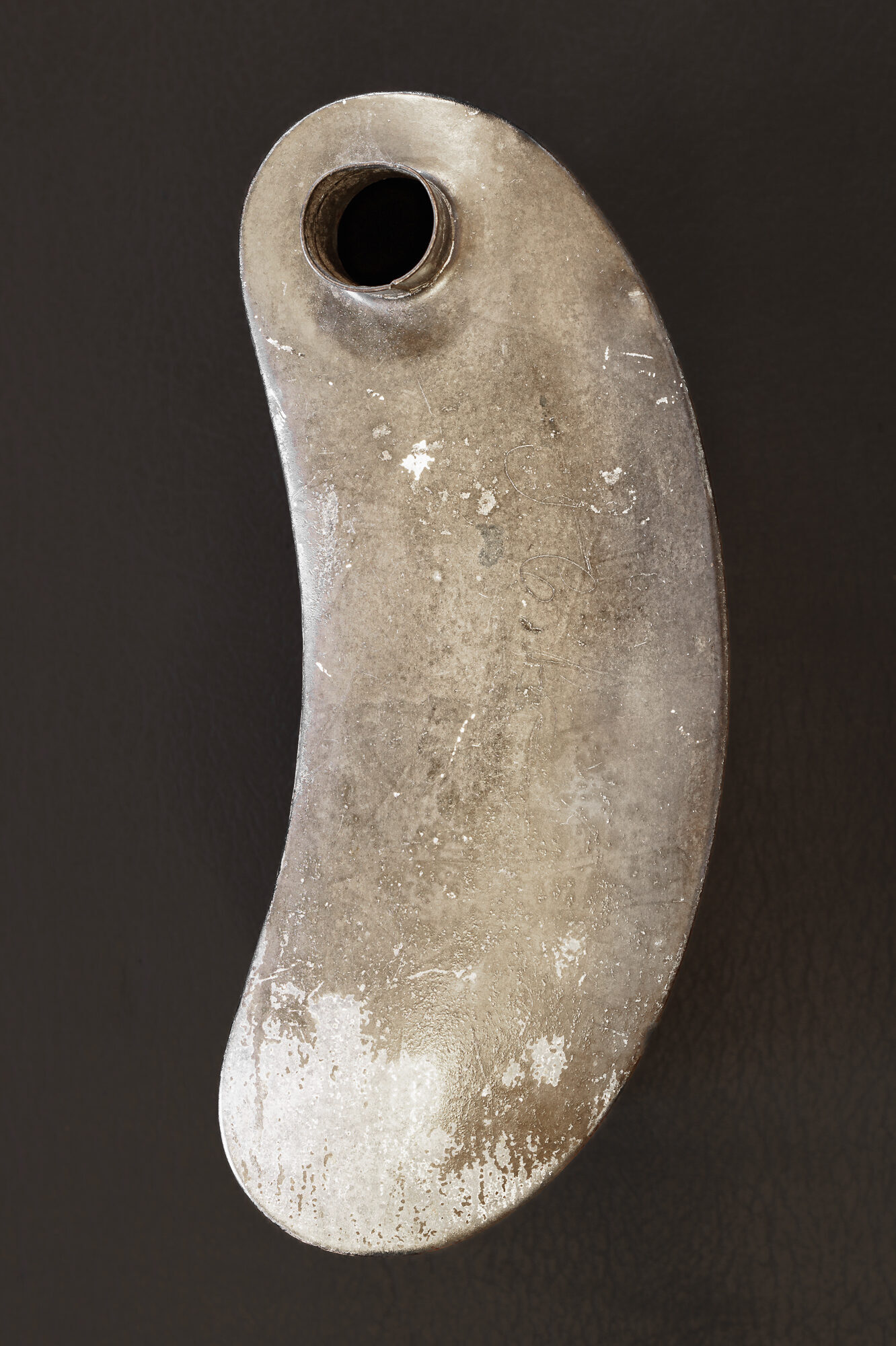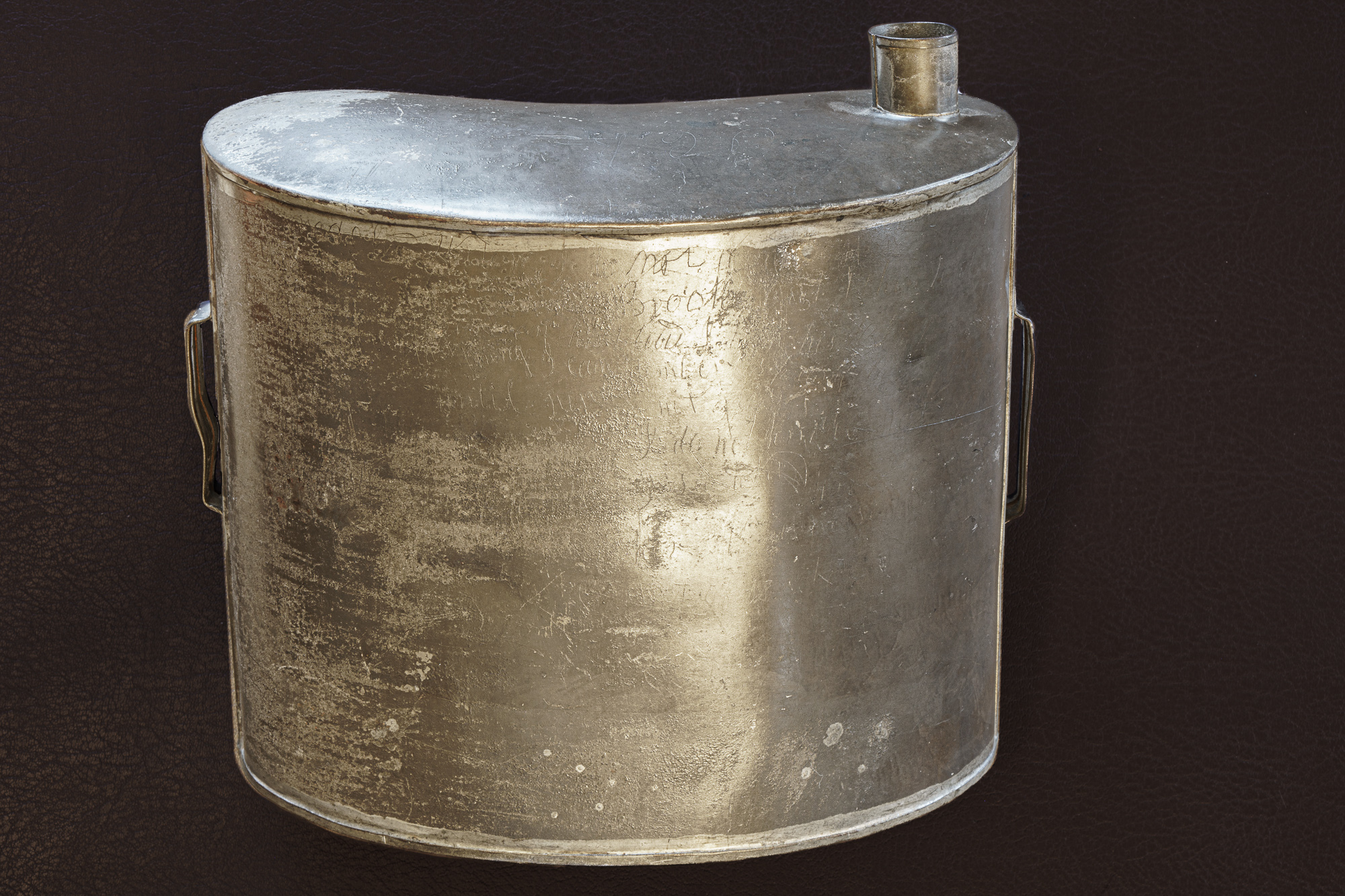
Benjamin Herschel Babbage discovered Coulthard’s remains on 16 June, 1858, his canteen beside him having inscribed on it the pathetic message of his last hours. His dying message says, (in part) “I never reached water. I do not know[how] long it is since I left Scott and Brooks [his companions], but I think it Monday bleeding pomp [his horse] to leive on his blood. I took his black horse to look for water and the last thin I can remember is pulling the saddle off him and letting him go -……altho feeling exu- for want of water – my eyes – to my tong – I can see no way I get help-“. The canteen was presented to the Society by Coulthard’s son.
Prior to his pastoral explorations Coulthard had surveyed the town of Nuriootpa. The Uniting Church in that town commemorates his name.
